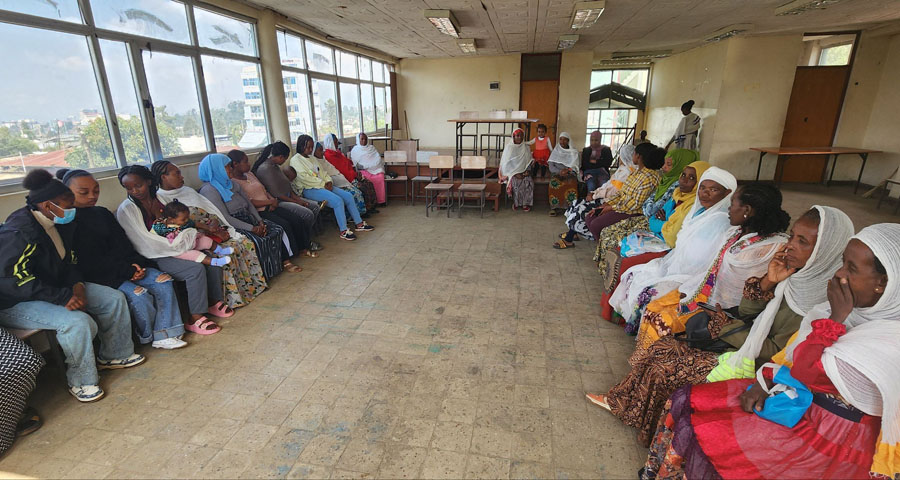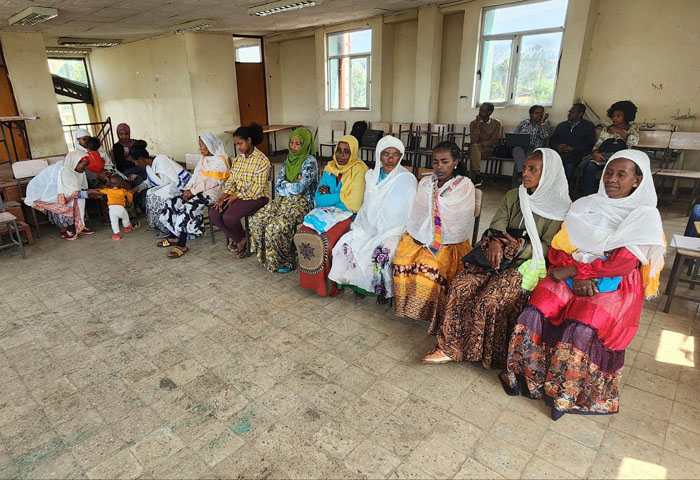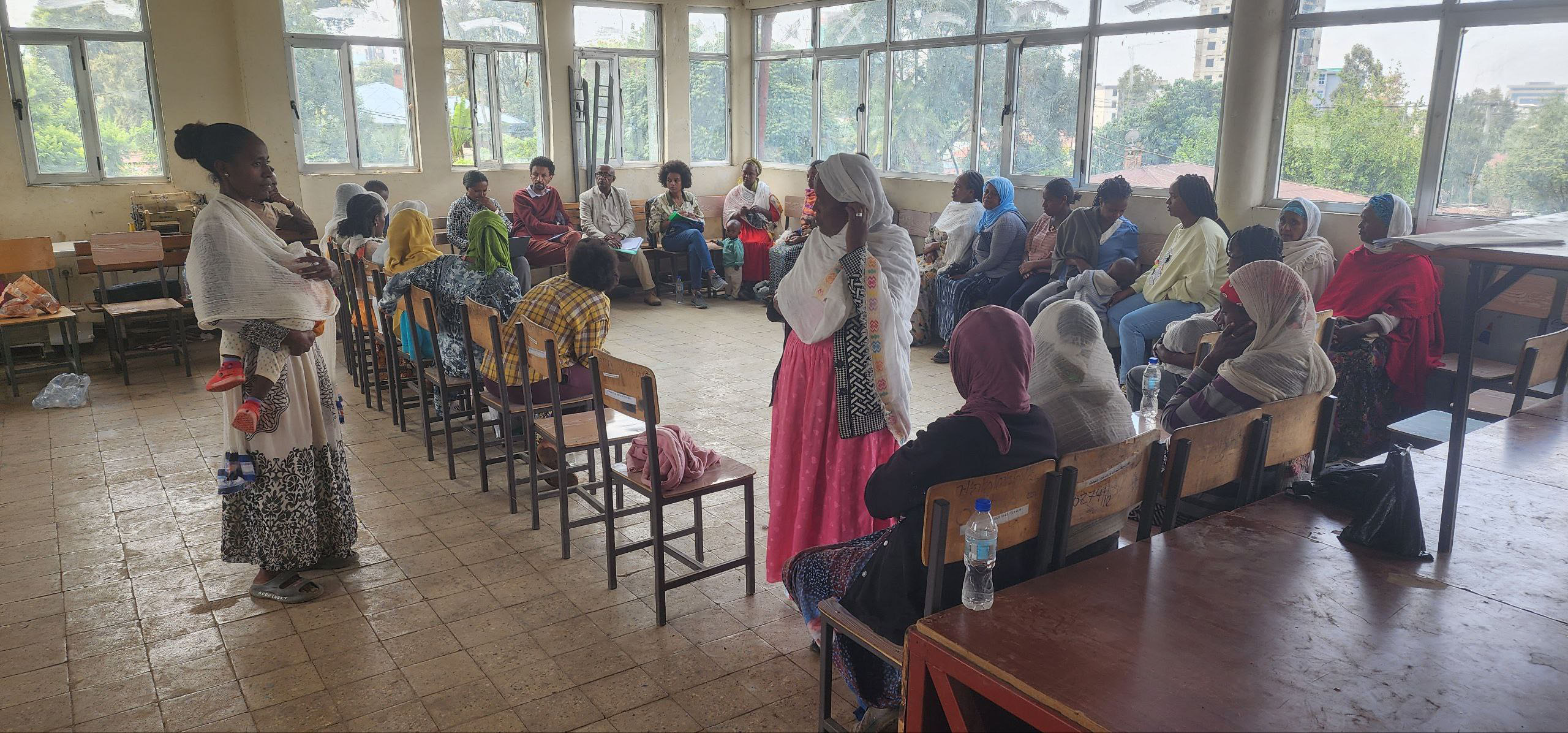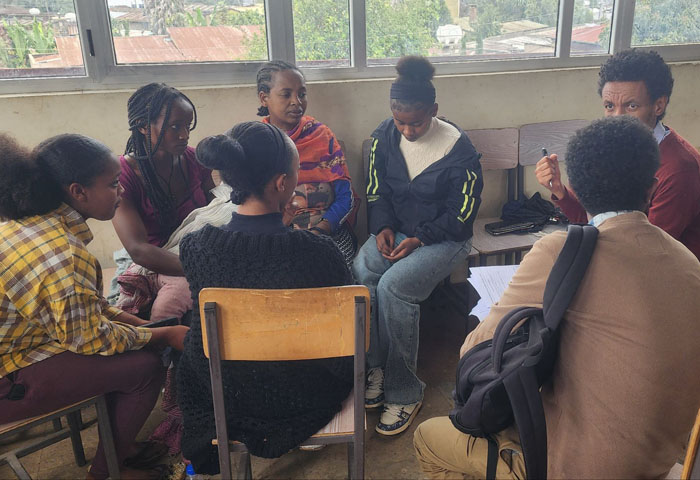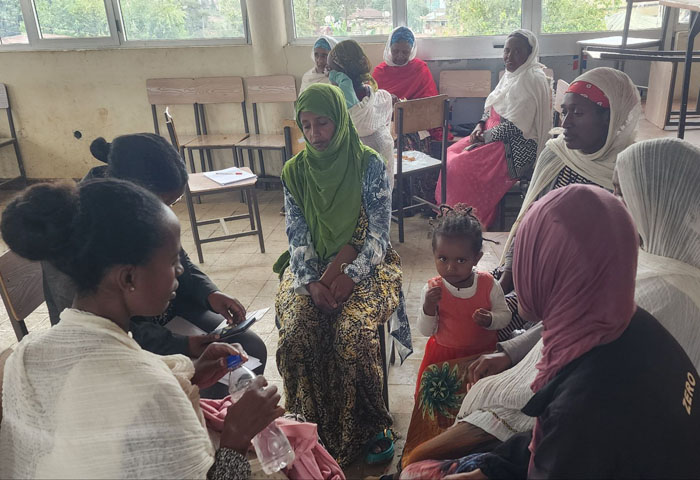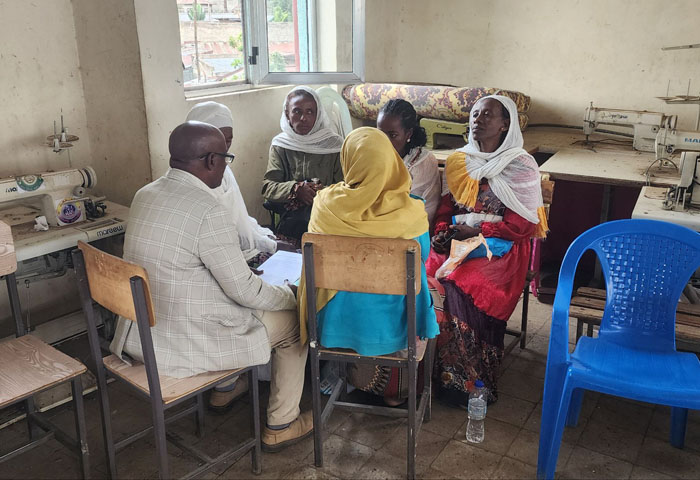40 female participants took part in the validation workshop carried out on June 03, 2025 at Gulelle Sub-City, Woreda 03 in Addis Ababa. The validation workshop reflected once again the concerns raised during the fieldwork.
The workshop served to validate the qualitative findings from the interviews with women in the selected study-site, an inner-urban slum in Addis Ababa. The aim was to further explore the economic, social and political conditions of female residents. As reiterated by the participants in the validation workshop, the women are without employment and rarely engage in income-generating activities. Many residents, both men and women, work as day labourers, sell firewood, prepare and sell local foods and drinks or engage in petty trade as a coping strategy to survive. Women often lack assets and any regular source of income which jeopardizes their economic empowerment. Moreover, women had limited access to financial services like savings or loans from banks and microfinance. Hence, the women are financially marginalized and excluded.
The government as the most important stakeholder for socio-economic transformation in the cities, endeavours to provide services and interventions for children in schools. This constitutes a significant move and decision to educate future generations. There are also some NGOs implementing development projects which should enable the urban residents to uproot slum poverty.
Housing continues to be one of the major concerns in urban areas. Inflation and absence of persistent income intensified the challenges of women living in slum conditions. One of the women in the validation workshop aired that: “Any complaints that you filed about the rental housing issue were never taken up or heard”. Regarding tenure security, displacement is a common practice due to the river rehabilitation project in Addis Ababa. Residents whose houses are demolished are being resettled to the public condominium settlements.
Services like water supply are available once a week for a few hours only. Fetching water from distant neighbourhoods is a common practice among the community members. Many household-related responsibilities fall on the shoulders of women. The absence or poorly designed private toilets further exacerbate safety issues. The communal pit latrines remain without much sanitary management. The poorly available infrastructures and services also encompass electric connections with frequent power outages as well as non-improved roads.
The next step in the transdisciplinary process will be to present the results of the qualitative research to experts and policymakers. In several feedback loops the women’s understanding of their current situation and their coping mechanisms should be better understood to be included in future urban development strategies and interventions.
